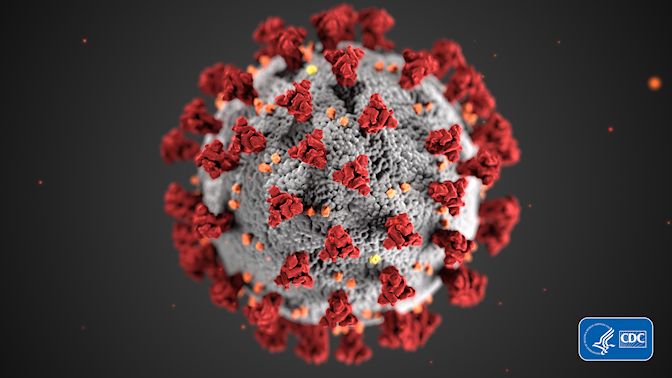Current Health Threats
If You Have Symptoms or Are Positive for COVID-19
Individuals who experience COVID-like symptoms should refrain from coming to campus while symptomatic. Individuals who test positive for COVID should remain off-campus during their specified quarantine and adhere to public safety guidelines. Students should communicate with their instructors regarding symptoms and/or testing positive.
If you believe you are experiencing COVID-19 symptoms, the CDC also has a “Coronavirus Self-Checker” that can help you make decisions about seeking appropriate medical care.
Face Masks Are Optional
As of Feb. 21, 2022, masks are no longer mandated on the Wayne Community College campus except for select areas of the campus with specialized requirements. Individuals may choose to continue wearing masks. Disposable masks are still available from dispensers located near doors.
Individuals who choose to go without masks are asked to continue to self-monitor and be mindful of social distancing as a continued precaution at this time.
Laptop Loans
Students who do not have a computer to use for their classwork may be able to borrow a laptop. The process begins with one of the student’s instructors completing a Laptop Loan Referral Form. Laptops are issued through the Erwin Library (third floor of the Wayne Learning Center) library where the student will be required to sign a Borrowed Equipment Agreement. For more information, email or call the library (919-739-6891).
WCC's COVID-19 RESPONSE
Wayne Community College is committed to providing a safe and healthy environment for all of the students, employees, and members of the public who use its facilities, whether we are faced with seasonal influenza or a new infectious disease like COVID-19.
The college is taking steps to help the campus and community avoid illness, including
- Encouraging the public to take advantage of remote options for accessing college services but making face-to-face interaction available when necessary while employing all appropriate health precautions.
- Employing alternative instructional methods with online and hybrid options.
- College services are provided under conditions that exercise all precautions.
- The college has located hand sanitizer dispensers and face mask dispensers at strategic locations. Housekeeping staff members are using antiviral cleaning agents and giving extra attention to high traffic areas.
Testing for COVID-19
Personal Precautions
COVID-19 (Coronavirus Disease 2019) is a respiratory illness caused by a novel (new) coronavirus. There are steps that everyone can take to avoid being exposed to the virus that causes it and to prevent infection. Those steps are the same ones that we should be taking in the face of any infectious disease.
- Get vaccinated. The shots and boosters are free and available to anyone age 5 and older through local health departments, pharmacies, and community clinics. NCDHHS provides a vaccine locator on its website.
- Cover your mouth and nose with a face covering when around others and when you are in public. Studies have suggested that COVID-19 may be spread by people who are not showing symptoms. One estimate is that as many as a half of all infected people are asymptomatic. You could spread COVID-19 to others even if you do not feel sick.
- Avoid close contact with other people. Even if others do not appear to be sick, they could share the virus with you.
- Use good handwashing techniques and do so often, especially after going to the bathroom, before eating, and after blowing your nose, coughing, or sneezing. Wash with soap and water, scrubbing for at least 20 seconds (the time it takes to sing “Happy Birthday” twice). Use a hand sanitizer that contains at least 60 percent alcohol if soap and water are not available.

- Clean and disinfect surfaces and objects that are touched frequently, such as door handles, light switches, counters and desktops, keyboards, and mice, using a regular household cleaning spray or wipe.
- Avoid touching your eyes, nose, and mouth.
- Cover your cough or sneeze with a tissue, then throw that tissue into the trash.
- Medical-grade facemasks should be used by people who are showing symptoms of COVID-19 (or the seasonal flu).
- Stay home if you are sick, except to get medical care. If you suspect that you have COVID-19 (have symptoms and have traveled to an impacted country or area with community spread or have had contact with someone who has traveled to those countries or areas or is known to have the disease), go to your doctor’s office or emergency department. Call them before you go to alert them of your suspicions and condition.
- Practice other good habits to maintain your health. Get plenty of sleep, be physically active, manage your stress, drink plenty of fluids, and eat nutritious food.
- Make sure you are getting information from trusted sources. There are a lot of rumors, false promises, and wrong reports floating around. Please don’t allow yourself to be tricked.

Array
Anyone with COVID-19 symptoms or who has been or suspects they were exposed to someone with the diseases should be tested. Learn more about who should be tested, where a test can be performed, and how to obtain an at-home test kit on the NCDHHS website.
Vaccination
Wayne Community College does not require that its students, personnel, or visitors be vaccinated against COVID-19 but does acknowledge that all approved vaccines have been proven to help prevent the disease and are effective in preventing hospitalization and death.
Some important points about vaccination:
- COVID-19 vaccines are available in North Carolina to everyone age 5 and older.
- The vaccine is free everywhere in North Carolina.
- No photo ID or insurance is needed.
- U.S. citizenship is not required or checked.
- Depending on where you get your vaccine, you may need to make an appointment. NCDHHS provides a vaccine locator as does VaccineFinder.
NCDHHS provides information about the different vaccines that are available in North Carolina and their safety on its website.
State of Emergency
On March 10, 2020 North Carolina Governor Roy Cooper declared a State of Emergency for our state based on the health emergency posed by COVID-19.
This came on the heels of the confirmation of multiple cases of the respiratory disease. Cases are spread across the state, including in Wayne County.
A “state of emergency” does not mean that there is an imminent threat to your health or we are under martial law. It is not a reason to panic.
A declaration allows the State of North Carolina to requisition resources, to seek federal assistance, and to protect consumers from price gouging and deceptive trade practices, among other steps necessary to respond to this health concern.
WCC's Precautions and Response
Wayne Community College’s duty includes protecting its students, faculty, staff and visitors; educating the college community to take steps to prevent infection, be prepared to self-support, and understand any necessary containment measures; communicating with all involved parties throughout the event; and supporting the continuation of as many college operations and services as possible if it is safe to do so.
The college is following North Carolina Department of Health and Human Services and Centers for Disease Control and Prevention guidance and U.S. Department of Education recommendations. It is in contact with the Wayne County Health Department and other partner agencies. It is directed by its Pandemic and Communicable Disease Preparedness and Response Plan, Emergency Response Plan, Business Continuity Plan, communicable disease and infection control and personnel policies and procedures, and other documents, which it regularly reviews and updates.
The college is addressing issues as they arise. Its Pandemic Response Team meets as necessary to determine the best course of action for our college community.
As more information and guidance becomes available, it will be shared on this page, via email, and through other avenues.

